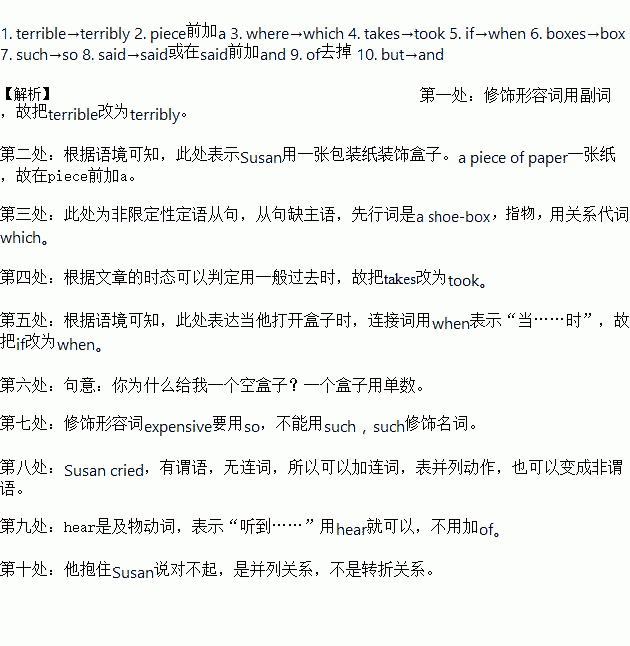题目内容
假定英语课上老师要求同桌之间交换修改作文,请你修改你同桌写的以下作文。文中共有10处语言错误,每句中最多有两处。每处错误仅涉及一个单词的增加、删除或修改。
增加:在缺词处加一个漏字符号(∧),并在其下面写出该加的词。
删除:把多余的词用斜线(\)划掉。
修改:在错的词下划一横线,并在该词下面写出修改后的词。
注意:1. 每处错误及其修改均仅限一词;
2. 只允许修改10处,多者(从第11处起)不计分。
Susan’s family was terrible poor. One Christmas Eve, Susan’s father saw that Susan had used piece of gold wrapping paper to decorate a shoe-box, where is so precious to their family, and she put it under the Christmas tree. The next morning, Susan takes the box to her dad and said, “This is for you, dad!” But if he opened it, he found it was empty. “Why do you give me an empty boxes? Don’t you know the gold wrapping paper is such expensive to us?” Her dad said angrily. Susan cried, said, “Dad, it isn’t empty. I blew kisses into it until it was all foil.” Hearing of this, the dad felt regretful, he held Susan in his arms but said “Sorry, my dear, I love you!”.

